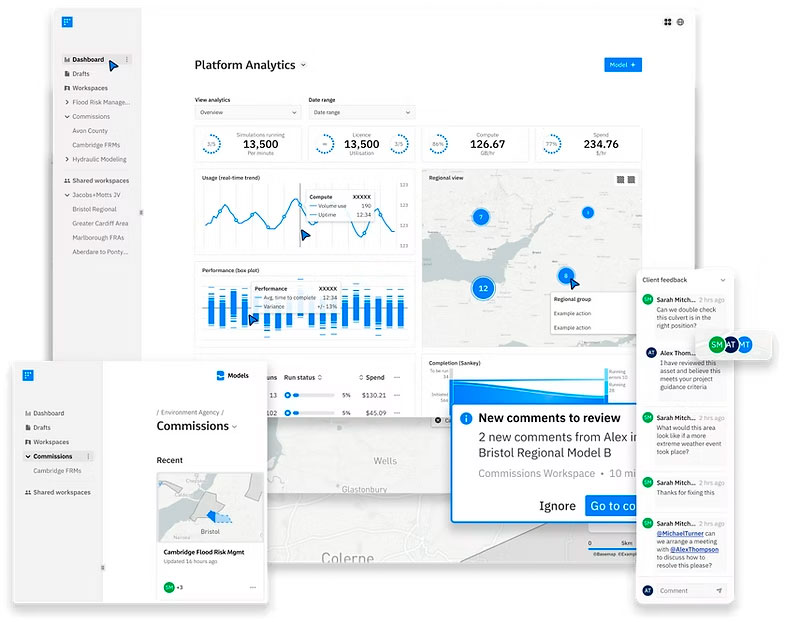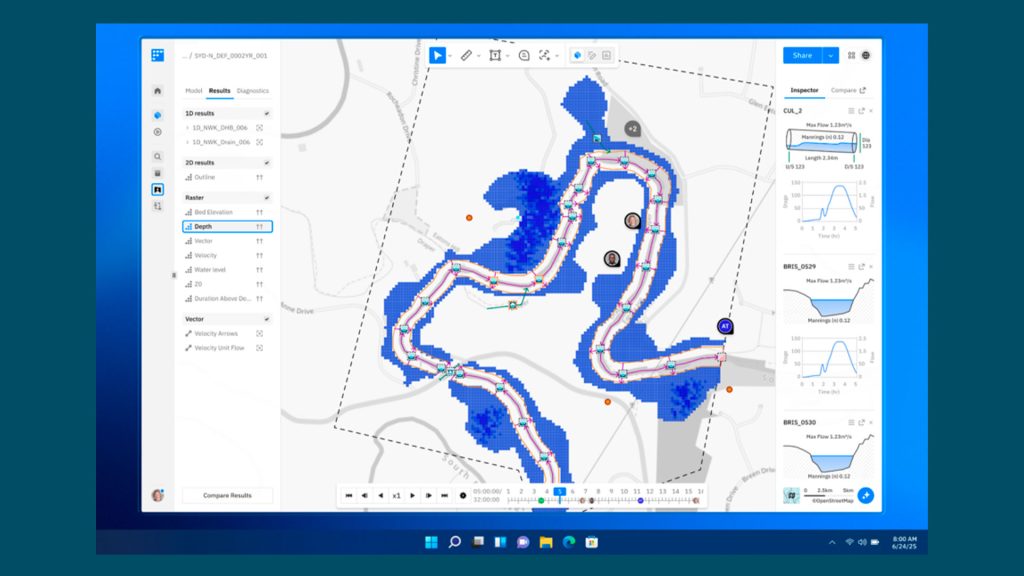Cloud-based ‘Flood Platform’ designed to support faster, data-driven decisions on infrastructure flood resilience
Jacobs has introduced Flood Platform, a cloud-hosted hub for advanced flood modelling that is designed to support the planning and delivery of critical flood infrastructure programs.
Flood Platform is designed to help firms overcome the challenge of managing and interpreting large volumes of data, especially as flooding and extreme weather events become more frequent and severe.
The subscription-based offering, built on Microsoft Azure technology, standardises how users manage, view and analyse flood-related data.
It acts as a central location for data, simulations and collaboration, and integrates with flood modelling tools like Jacobs Flood Modeller.
Users can upload data, manage access permissions, perform analysis, and collaborate with both internal teams and external stakeholders.
“At Jacobs, we integrate digital, data and AI capabilities throughout our global delivery portfolio to solve complex client challenges,” said Jacobs executive vice president Amer Battikhi.
“Flood Platform demonstrates how cloud-based technology and automation can improve infrastructure planning and modelling – helping clients make more informed decisions and achieve faster project delivery and strengthened resilience.”
Flood Platform was originally developed by Jacobs for internal use and has supported project delivery for more than 15 years. In response to client needs, Jacobs refined and expanded its capabilities, and it is now available as a subscription service to organizations worldwide.
The platform has been instrumental in supporting significant projects such as Melbourne Water’s Flood Mapping Program, which aims to provide comprehensive flood mapping for all municipalities across Greater Melbourne and the Westernport region, and the Environment Agency’s Oxford-Cambridge Arc Flood Risk Investment Study, which helped unlock more than $134 billion (£100 billion) in economic value.







